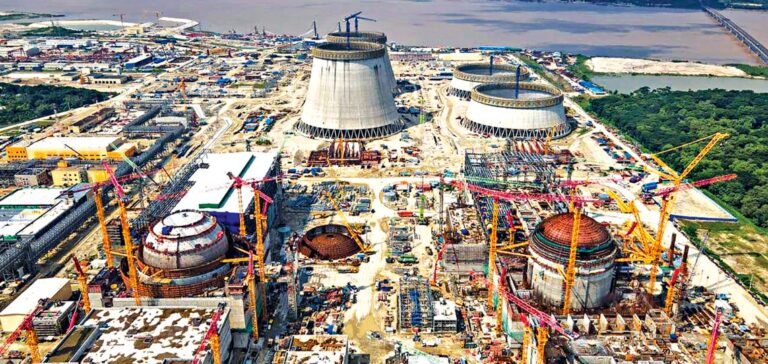The IAEA is conducting a mission to Bangladesh to review the regulatory framework for nuclear safety and radiation protection. The country is currently engaged in the implementation of a major nuclear energy program.
The IAEA mission in Bangladesh
IAEA conducts its first regulatory review mission to Bangladesh. Indeed, the country is currently building its first nuclear power plant in Rooppur. Thus, Dhaka is committed to continuous improvement of nuclear safety at the end of this mission.
This mission, led by the Integrated Regulatory Review Service (IRRS) team, aims to strengthen the effectiveness of the national regulatory infrastructure. However, it recognizes the responsibility of each country to ensure safety. The team consists of 15 senior regulatory experts from various countries such as Canada, France and India.
In addition, 6 IAEA staff members completed this group. They examine the responsibilities and functions of government. The issues examined are the management and operations of the regulator and emergency preparedness and response.
The recommendations made
Following their visit to Bangladesh, the IAEA mission makes several recommendations. The first is the establishment of the national safety policy and strategy. Indeed, they must comply with the Agency’s objective and fundamental safety principles.
On the other hand, the legal framework for nuclear safety and radiation protection needs to be updated. In particular, the Bangladeshi authorities must review the principles concerning the protection of workers, the public and the environment. Finally, BAERA (the Bangladesh Atomic Energy Regulatory Authority) will need to ensure that a sufficient number of personnel are trained to perform all functions effectively.
In addition, the IAEA mentions a number of good performances by BAERA. In particular, it encourages him to continue to seek technical advice from expert committees. The Bangladesh authority is also distinguished by the establishment of a code of ethics, providing a commitment to an ethical approach in its regulatory activities.





















